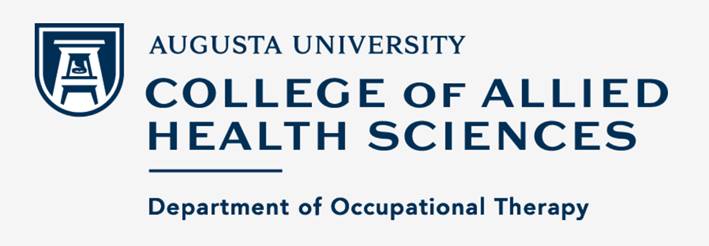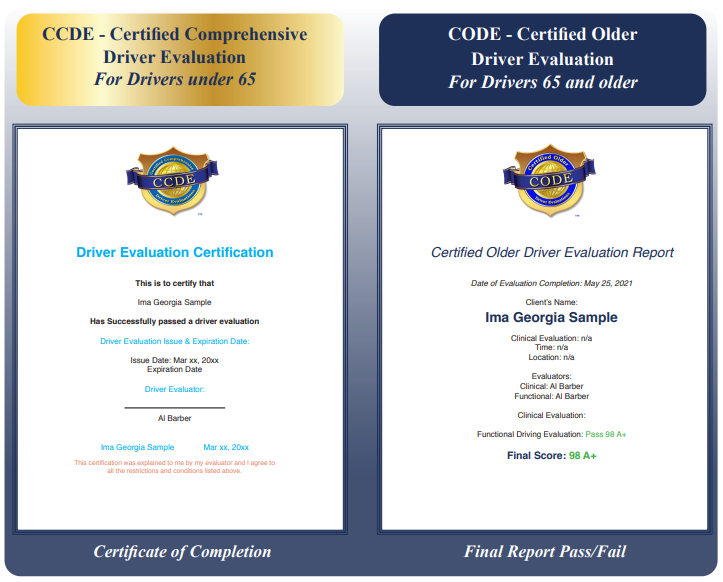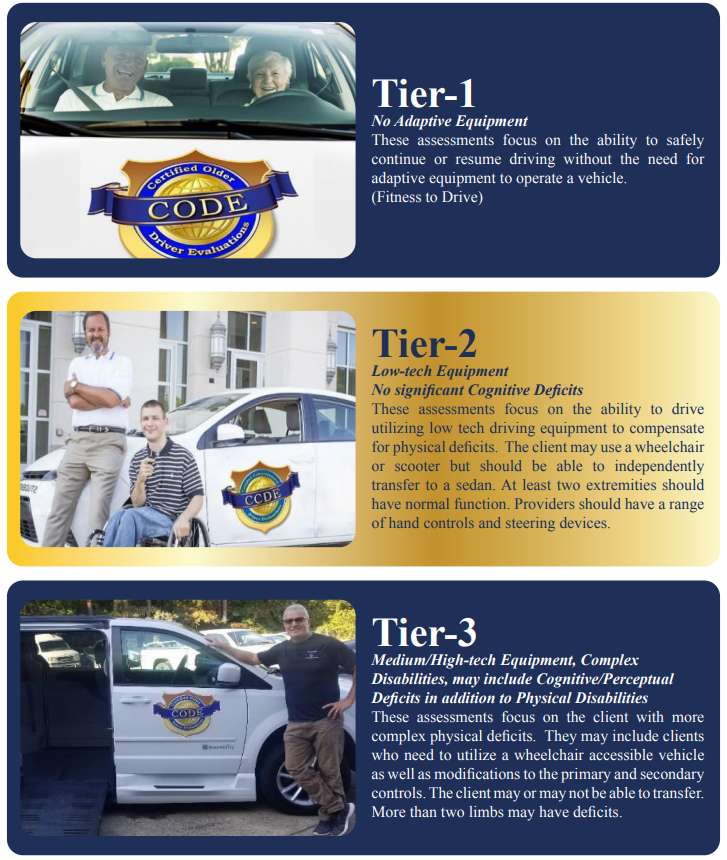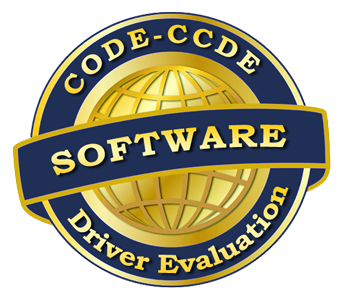
The University of Alabama at Birmingham, Department of Occupational Therapy
Low Vision Rehabilitation Graduate Certificate Program
Our mission is to develop occupational therapists globally who can specialize in the evaluation and treatment of all adults with vision impairment. Our program is specifically designed for you – the working practitioner.
- All activities are clinically based.
- All courses are flexible for your schedule.
- All students pay resident tuition.
- You only need five courses to earn.
The University of Alabama at Birmingham’s Low Vision Rehabilitation Graduate Certificate Program helps prepare you to address age-related and neurological conditions. Our topics holistically cover adult vision rehabilitation and include those such as optics, assistive technology, occupational performance and driving and community mobility. We also offer an elective course that addresses the evaluation and treatment of individuals with blindness.
Admission requires an occupational therapy degree from an accredited school and licensure in your state of practice (if applicable). Professionals from other disciplines are considered on a case-by-case basis. Questions? Please contact Beth Barstow, the program director, at bbarstow@uab.edu.
Learn more: https://uab.edu/lowvision

Masters of Health Science in Occupational Therapy
The mission of the Augusta University Occupational Therapy Department is to develop occupational therapists who change the world through exemplary service, innovative practice, and excellence in scholarship.
Our vision is to be an occupational therapy program of excellence renown for our global impact in addressing with dignity, integrity, compassion and a commitment to social justice, the needs and well-being of individuals and collective societies.
Augusta University offers a Master of Health Science in Occupational Therapy which is comprised of six semesters, including 89 credit hours. During these two years, students will complete six one-week fieldwork rotations and two 12-week fieldwork rotations at sites throughout Georgia and across the U.S. After successful completion of the program, graduates are eligible to sit for the National Board for Certification in Occupational Therapy examination.

Click to expand/collapse each section to learn more:
Driving is not just about getting from one place to another; often, it is how we conduct our lives. Losing or being limited in one’s driving ability not only impacts our transportation, but impacts one’s freedom and independence.
Drivers of any age experiencing any of the following:

- Family, friends, doctors, or, caregivers have expressed concerns about your driving
- A law enforcement officer, DMV, DDS, or a judge has ordered you to take a driver evaluation
- A medical condition that could affect your driving abilities.
- A change in your vision.
- Concerns about medications you are taking and their effect on driver safety.
- A diagnosis of dementia or Alzheimer’s Disease.
- Parkinson’s Disease
- Multiple sclerosis
- Cerebral Palsy
- Traumatic Brain Injury
- Paralysis or loss of limb
- Low Vision, Glaucoma, Macular degeneration
- Stroke, Heart Failure
- Neuropathy
- Mental or physical decline due to age.
- Asperger’s syndrome
- ADD or ADHD
- A lack of confidence in driving ability.
- A recent move into a new city.
- Have recently become the primary driver in the family.
- A recent gap of time without driving.
- Recent involvement in an auto or other accident could impact one’s driving.
Step 1: Create the Client Portal in CODE Software – Managing Partner (Driving School)
- Walk-in clients are accepted, phone calls, a website inquiry or enrollment, or a stakeholder referral.
- Set appointment.
- Collect fees or billing info.
- Create Client Portal in CODE Software.
Step 2: Email the Health Questionnaires – Managing Partner (Driving School)
- Questionnaires to be completed by the client driver are in the areas of: personal assessment, general information, legal driving record history, mental and physical health status, and behavioral health. Family, friends, and caregivers can assist with these questionnaires, but if no one is available for support, contact your managing partner for assistance.
- Questionnaires to be completed by family, friends, and caregivers.
Step 3: Clinical Evaluation – Associate Partner (Hospital, Clinic, OT/PT)
- Hospital Outpatient Rehab Center.
- Cognitive, visual and physical activity assessments.
- Medication review.
- Refer out for another professional test like to the ophthalmologist, if necessary.
- Enter Assessment results into CODE Software.
Step 4: Functional Evaluation-Behind-The-Wheel – Managing Partner (Driving School)
- Conducted by a State Certified Driving Instructor/Third Party Exam Road Test.
Step 5: Generate Final Evaluation Report in CODE Software – Managing Partner (Driving School)
- Computer generated CODE-CCDE Final Report.
- CODE Software will pull all reports together for a comprehensive final report.
Step 6: Deliver CODE-CCDE Final Report and Certificate – Managing Partner (Driving School)
- Associate Partners and Stakeholders that ordered the evaluation will receive the final report.
- Release of information required to release any info to any party other than the client taking the driver evaluation.
Step 7: If Failed/Driver Cessation – Managing Partner (Driving School)
- Share other sources of transportation in the area.
- Possible referral to grief counselor.

Tier 1
This level will typically include:
- Mild Cognitive Dysfunction
- Memory loss
- Dementia
- General safety concerns/Effects of aging
- Learning disability
- Autism Spectrum disorders
This level may include:
- CVA/TBI – non-complex
- Parkinson’s disease – non-complex
- Psychiatric disorders
Tier 2
Examples of typical diagnoses include:
- Neuropathy
- Foot drop
- Lower extremity amputation
- CVA or TBI with physical deficits such as hemiplegia
- Paraplegia
- Multiple Sclerosis
- Spina Bifida
- Arthritis
- Cerebral Palsy
- Chronic pain
Tier 3
Examples of typical diagnoses include:
- Quadriplegia
- Muscular dystrophies
- UE amputations or amputations of >2 limbs
- Congenital conditions that affect multiple limbs
 Our HIPAA compliant software application connects electronically through its web-based interface from the CODE and CCDE clients to the evaluating partners and stakeholders in order to gather and compile all necessary information to produce the CODE and CCDE Final Reports. No software download required.
Our HIPAA compliant software application connects electronically through its web-based interface from the CODE and CCDE clients to the evaluating partners and stakeholders in order to gather and compile all necessary information to produce the CODE and CCDE Final Reports. No software download required.
The final report includes all health questionnaires completed by the client online and all clinical evaluation assessments (Cognitive, Physical and Visual), and the road test evaluation scores. In addition, the application generates summary reports of concern from the questionnaires and medication list.
The Application combines all of this information to produce electronically a final CODE Report and/or a final CCDE Report and any certificates needed to evidence the client’s ability to continue to drive with or without conditions, the need for periodic re-examinations, or the need for the driver to cease driving.
Who will see the written results of the Evaluation?
The driver being evaluated has primary access to the evaluation outcome and to persons or entities that are driver-authorized. Drivers often request that copies be sent to physicians, adult children, the state DMV, DPS, DDS, insurance companies, judges, and others.
If I don’t pass my evaluation, will I lose my Driver’s license?
This depends on whether your physician makes a referral to your state licensing agency. If an individual can no longer drive safely, the physician will complete any medical review forms required by your state’s driver’s licensing agency. The overall results from your driver evaluation will be included as part of the medical report.
Who administers the Evaluation?
The Evaluation is administered in 3 parts conducted by state-certified personnel.
- The Health Questionnaires can be completed in the comfort of the driver’s home. There are 7 comprehensive health questionnaires in potential areas of concern: legal; mental and physical health; behavioral health; and family, friends, and caregivers.
- The Clinical Evaluation is performed by an Associate Partner who is a licensed Occupational Therapist or Physical Therapist. It can also be performed by others who have been trained to administer such tests. Typically, this will be an established hospital with an outpatient Physical/Occupational therapy service.
- The Functional behind-the-wheel evaluation is performed by a certified driving instructor from one of our driving school Managing Partner. The instructors are experienced, friendly, patient, and highly supportive.
Whose vehicle will be used for the Evaluation?
All evaluations are conducted in the managing partner’s vehicle, such as a vehicle from the Driving School.
How often do I need to take the Evaluation?
Older drivers should take the evaluation every 6-9 months if they have been diagnosed with dementia, Alzheimer’s, Parkinson’s, muscular degeneration, and other degenerative conditions. An evaluation may be necessary in less than 6 months, given situational changes in the driver’s life.
When will the Evaluation be conducted?
Generally, evaluations are administered 5 days a week from 9:00 am until 5:00 pm. Check with your network provider for their hours of operation. All evaluations are given by appointment only. Contact the network provider for available dates and times.
Where will the Evaluation be given?
- The online Health Questionnaires can be completed at home using our CODE-CCDE software. Simply follow the link provided in the email to access the software.
- The Clinical Evaluation is performed by a certified Occupational Therapist during an outpatient visit conducted at one of our network providers
- The Functional Behind-the-Wheel Evaluation will be conducted at the local state-certified driving school. The road portion will be conducted on a certified road test route, or may be given for drivers’ most often traveled routes. (See potential additional fees below, if you are out of the network service provider’s area of service)
How much does the Evaluation Cost?
The driver evaluation costs $297.00 out of pocket. The evaluation will be completed in 1 hour increments over a 3-day period. Driving schools may charge the following additional fees:
- $1 per mile both ways, an hourly rate of $30.00, or both, when traveling out of their service area
- $50 for assistance completing the online questionnaires
- $200 for a 2-hour refresher course before or after the evaluation
- Road test fee if the driver fails their first road test and is eligible for re-examination